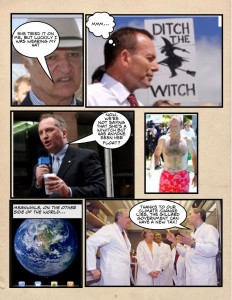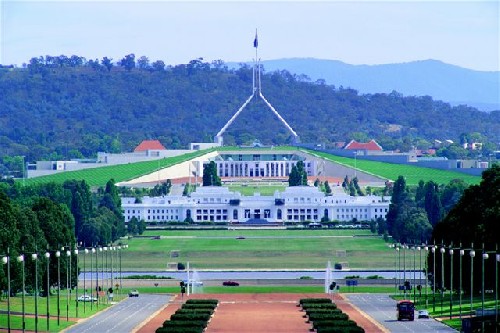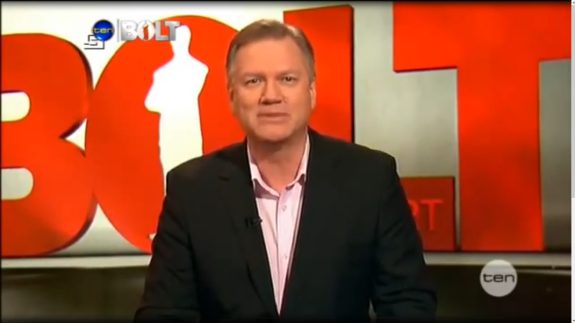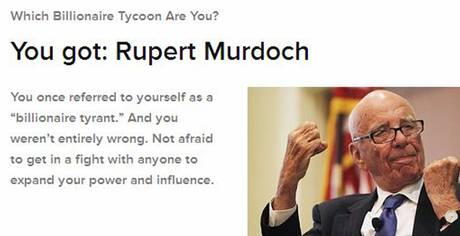ABC leaks Confidential Information – They Must Have a Government Appointed Person To Veto their Stories!!

“Holden has made the decision to pull out of Australia as early as 2016, according to senior Government ministers.
The ABC has been told the announcement was supposed to be made this week but has been put off until early next year.”
The ABC, 6th December 2103
So, Government Ministers – unnamed – are telling the ABC about Holden’s “decision” to close, and the ABC publicises these rumours. This is further evidence for the argument that the ABC needs to be brought back under some sort of control, isn’t it? I mean, clearly they were the first to run with this story. Surely, the Ministers concerned wouldn’t have only let the ABC know. And they haven’t put the names to the story, so clearly they were speaking off the record. So obviously, all the other media that were told must have decided that it wasn’t in Australia’s interest for this story to run and hushed it up, as good journalists do.
Have I got that right? Is that the way it is?
Or is it the Liberals attempt to prepare us, let us in on the secret so that it’s not a big shock when Holden announce their decision? And, of course, because the decision’s already been made, well, there’s no need for any government support, is there? Why throw good money after bad, trying to encourage a firm to stay when we all knew that they were going anyway. Nothing to do with us.
The question of whether we should be subsidising the automobile industry is fairly complex. The arguments for and against subsidies for any industry, however, should come down to pragmatism, not ideology. Is a subsidy for this industry important to either the short term or long term future of this country? Do we need to find a balance between those two things? And if we choose to change existing arrangements, how do we manage the consequences of that?
Take the fossil fuel industry, for example, as a great example of how not to manage change. There will be some demand for coal for the forseeable future, but there is the possibility that this demand will drop. There is also the inevitability that coal will run out eventually. Instead of planning for change, we do what we can to try and keep the industry going, even to the extent of putting billions into the researching of an oxymoron, “clean coal”!
If the Coalition have decided that they’re ideologically opposed to propping up the car industry, then it would be better to be honest about that, rather than hide behind the fig leaf of the productivity commission report, delaying their own actions till Holden makes the first move. At least then we can start to look at the ramifications and to manage the changes in an planned way.
But I suspect this is going to be another, “Hey, don’t blame us, we’re just the Government, not our problem” moment. (Did I say “moment”? Perhaps I should have said “era”!)
Why else would we be getting ministerial leaks about the so-called decision from Holden? To the ABC, of all places. They should have refused to publish, citing national interest!
POSTSCRIPT:
ABC update:
‘Mr Abbott said this morning that he wants Holden to stay in Australia, but has warned it will not be getting any more help from taxpayers.
“We took a policy the election, that policy includes very substantial ongoing support for the motor industry,” he told Radio 3AW.
“We stand ready to make that support available but there’s not going to be any extra money over and above the generous support that taxpayers have been giving the motor industry for a long time,” he said.
“I do wish Holden would clarify their intentions because at the moment they’ve got everyone on tenterhooks,” Mr Abbott said.’
Fairfax Backdate:
‘Federal and state government help beyond 2016 remains clouded, but Mr Macfarlane said his intentions were to make the industry more independent and globally competitive.
”Time is running out … but the reality is we’re going to get this right, we’re going to give this everything and I’m going to ask General Motors in Detroit to be a little bit patient,” Mr Macfarlane said.
”I know they’ve got deadlines, I’m doing my best. These guys are all promising me we’ll have a frank discussion behind closed doors – there’ll be no leaks, there’ll be no politics.
‘‘I’ve got to have a Productivity Commission report before I hand down the final decision. I will try and do something in the short term just to keep everything going. The long-term plan is to have an auto industry here for a long time.”
Before the election, the Coalition vowed to slash $500 million in car industry funding, casting doubt over whether manufacturers would survive.’
So, there ya go, folks, it’s all part of their mandate! But hey, the Government need to wait for the Productivity Commission, it’s Holden that should just hurry up and announce the closure, so that it’s all they’re fault!

















